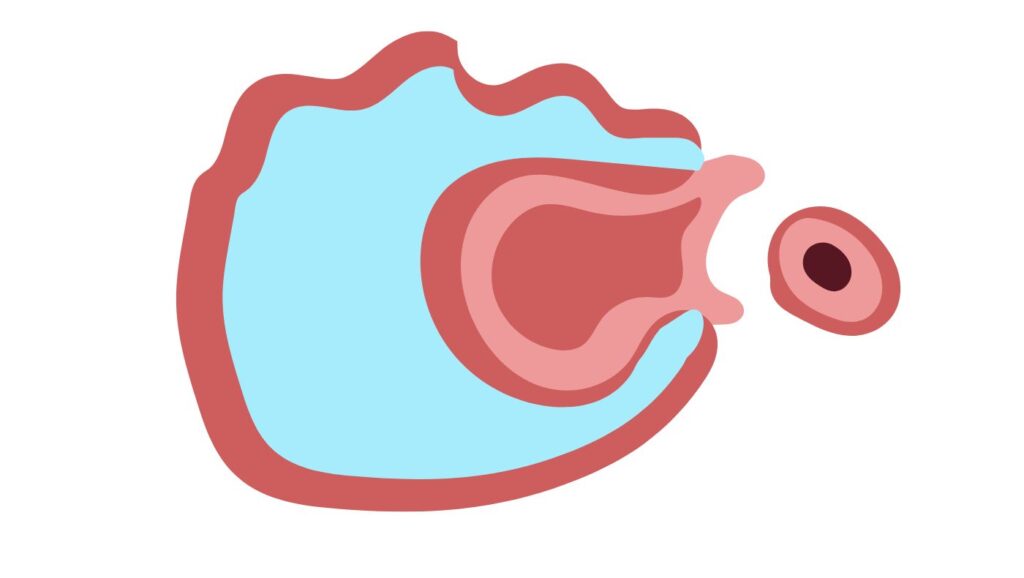
Introduction
Suggested research findings indicate that hyperprolactinemia occurs due to elevated prolactin hormone production for milk stimulus after childbirth in women. High prolactin concentration disrupts lactation development which causes multiple reproductive health problems that affect ovulation functions.
Menstrual cycles become irregular and ovulation functions get blocked in hyperprolactinemic women which leads to conception obstacles. Proper medical evaluation and treatment of ovulation dysfunctions needs complete comprehension about how elevated prolactin hormone levels connect with each other.
What is Hyperprolactinemia?
Medical diagnostic testing reveals hyperprolactinemia to be a medical condition where prolactin levels exceed standard measurement value ranges. Studies show normal female prolactin existence should not surpass the threshold of 25 ng/mL. Such prolactin levels beyond clinical thresholds produce adverse impacts on reproductive operations.
Hyperprolactinemia Causes
Several factors can contribute to elevated prolactin levels, including:
- Physiological Causes: Physical factors that increase prolactin levels include pregnancy together with breastfeeding stress and sleep patterns that follow nipple stimulation.
- Pathological Causes:
- Prolactinomas: Benign tumors of the pituitary gland that lead to excessive prolactin production.
- Hypothyroidism: A deficiency of thyroid hormones triggers pancreatic prolactin production to increase beyond healthy ranges.
- Polycystic Ovary Syndrome (PCOS): Polycystic Ovary Syndrome (PCOS) results in women showing slightly higher prolactin levels since the condition triggers this change.
- Chronic Kidney Disease: In patients with chronic kidney disease the broken kidney function blocks prolactin from exiting the body effectively.
- Medications:
- Antipsychotics (e.g., risperidone, haloperidol)
- Antidepressants (e.g., SSRIs, tricyclic antidepressants)
- Dopamine antagonists
- Estrogen-containing contraceptives
How Hyperprolactinemia Affects Ovulation
Several problems appear when prolactin reaches high levels because these disrupt normal ovulatory function.
1.Suppression of Gonadotropin-Releasing Hormone (GnRH)
When the hypothalamus releases GnRH is suppressed by elevated prolactin levels that decrease vital hormone production of follicle-stimulating hormone (FSH) and luteinizing hormone (LH) required for ovulation.
2.Disruption of Ovarian Follicular Development
Low FSH concentrations delay the growth process of ovarian follicles until they fulfill their role as mature eggs (anovulation happens).
3.Luteal Phase Defect
The condition of mild hyperprolactinemia allows women to ovulate normally but inadequate corpus luteum function prevents them from producing enough progesterone which causes implantation failure and early pregnancy termination.
4.Menstrual Irregularities
Hyperprolactinemia is associated with:
- Oligomenorrhea: Infrequent menstrual periods
- Amenorrhea: Absence of menstruation
- The hormones fail to maintain regular cycles because hormone regulation becomes disrupted.
Diagnosis of Hyperprolactinemia
Several diagnostic tests determine what hyperprolactinemia causes elevated prolactin levels as part of this diagnosis:
- Blood Test for Prolactin Levels: Medical staff perform a morning blood sample to detect prolactin levels in patients under fasting conditions. The doctor will request additional examinations to verify elevated prolactin results.
- Thyroid Function Tests: The next step for hypothyroidism diagnosis as hyperprolactinemia’s cause requires medical professionals to run testing of TSH along with free T4 measurements.
- MRI of the Pituitary Gland: MRI of the Pituitary Gland should be performed when prolactin levels reach 100 ng/mL or higher to find prolactinomas.
- Review of Medications: A medication assessment enables the identification of drug-induced hyperprolactinemia.
Hyperprolactinemia Treatment and Ovulation Disorders
The hyperprolactinemia treatment approach consists of managing either the root condition or the intensity of hyperprolactinemia.
1.Dopamine Agonists
The prolactin levels of patients can be reduced effectively using cabergoline and bromocriptine medication, which helps resume normal ovulation patterns in most individuals.
2.Thyroid Hormone Replacement
The treatment of hypothyroidism using levothyroxine enables prolactin levels to reach normal ranges.
3.Surgical Removal of Prolactinomas
Large prolactin-secreting tumors which prove unresponsive to medicine treatment will eventually need surgical removal.
4.Ovulation Induction Therapy
Infertile women might use clomiphene citrate or letrozole medications to encourage ovulation.
5.Lifestyle Modifications
- Yoga, combined with meditation, teaches people to lower their levels of stress.
- Maintaining a balanced diet
- The usage of both excessive nipple stimulation and high estrogen contraceptives should be minimized.
Conclusion
The medical condition of hyperprolactinemia exists as a primary factor behind both ovulation disorders and female infertility problems, which practitioners commonly ignore. Therapy directed at the right time helps restore normal ovulation and enhance reproductive success. Visit a healthcare provider for an evaluation and proper management if you have irregular menstrual periods or problems getting pregnant.
Hormonal imbalances no longer need to restrict you because expert care is available at Ovum Fertility today.
FAQs
1. Can hyperprolactinemia be cured?
Yes, hyperprolactinemia shows effective results through medication interventions alongside therapies targeted at the source of the condition.
2. Can I get pregnant with hyperprolactinemia?
Hyperprolactinemia treatment of the condition enables ovulation restoration to boost your capability of getting pregnant.
3. How long does it take for prolactin levels to normalize with treatment?
Medical research proves that Cabergoline functions as other dopamine agonists to normalize prolactin levels within weeks to months.
4. Does hyperprolactinemia always cause infertility?
Not always. The ovaries can work in situations of mild hyperprolactinemia although these women will face challenges with their irregular menstrual cycles in addition to poor luteal phase functionality.
5. What foods can help regulate prolactin levels?
Hormone imbalances require medical intervention but following a diet of whole grains and lean proteins along with omega-3 fatty acids can support hormonal balance.
6. Are there any natural remedies for hyperprolactinemia?
The effective control of prolactin levels typically requires medication even though healthy habits, together with stress reduction, contribute to the outcome.